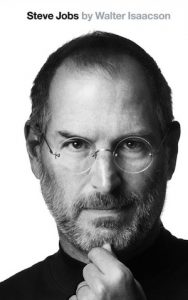In a recent conversation I had with a CEO of an online site, we exchanged on the almost conflicting nature of giving bold direction and vision versus empathic collaboration and listening skills. On the one hand, if we adhere to the ‘modern’ school of management, we are told that we should be great listeners and facilitators, have empathy, and collaborate openly with everyone. On the other hand, as the boss, we are supposed to provide clear direction, take tough decisions and, at times, dictate the law as we are held accountable for the results. As they say, the boss is the bottom line Click To Tweet
The boss’ balancing act
But, it’s a tricky balance to find for the boss. If you believe in listening intently to what your customers want and/or what your employees think, you can quickly be thrown off course by being pulled into a million directions. That’s definitely bad for business. Meanwhile, if you make the hard calls and implement the tough decisions, you can lose engagement — not to mention the plot — as your sources of honest inputs will likely dry up in commensurate measure.
The apple in your eye

The article, Silicon Valley has idolized Steve Jobs for decades—and it’s finally paying the price, published by Quartz and written by Krister Ungerboek, puts a challenging tone on the counterpoint of dictatorial visionary versus empathic collaborative leader. As Ungerboek writes, the systematic referencing to the success of Apple and the idolatry of Steve Jobs has given some the license to be similarly and unforgivingly inhuman. Walter Isaacson’s biography on Jobs “created a manual for any bosses seeking a hall pass for their temper tantrums.” The issue often seems that the visionary boss usually comes with a [big] downside.
In search of perfection
Isaacson’s justification for Steve Jobs style of management was that “Mr. Jobs was striving for perfection.” Ungerboek then continues, “But within this justification lies the problem. Of course Jobs wanted perfection—all CEOs do.” Where I take issue with Ungerboek is that I don’t believe that striving for perfection is a desirable mode of operation for CEOs, especially not if you are trying to institute a business that enables it to experiment, fail fast, iterate and/or pivot. If you strive for perfection, my observation is that the end then often justifies the means. You see this often in industries such as fashion and beauty, where authority figures are allowed to wield uncommon power and unjust methods for the “ultimate” result.
Yes, a boss needs to provide direction, but in an era where the employee’s energy and commitment are key points of competitive advantage over time, there must be a new way to provide that vision and take tough decisions, all the while having integrity, dignity and kindness? It is my conviction, that The ends do not justify the meaner means #myndset Click To Tweet As far as I’m concerned, a great boss will align the internal with the external, and make sure that they model internally the behavior and the way they would want their customers to be treated, too.
Balance taking tough decisions while having integrity, dignity and kindness. Click To TweetYour thoughts?











